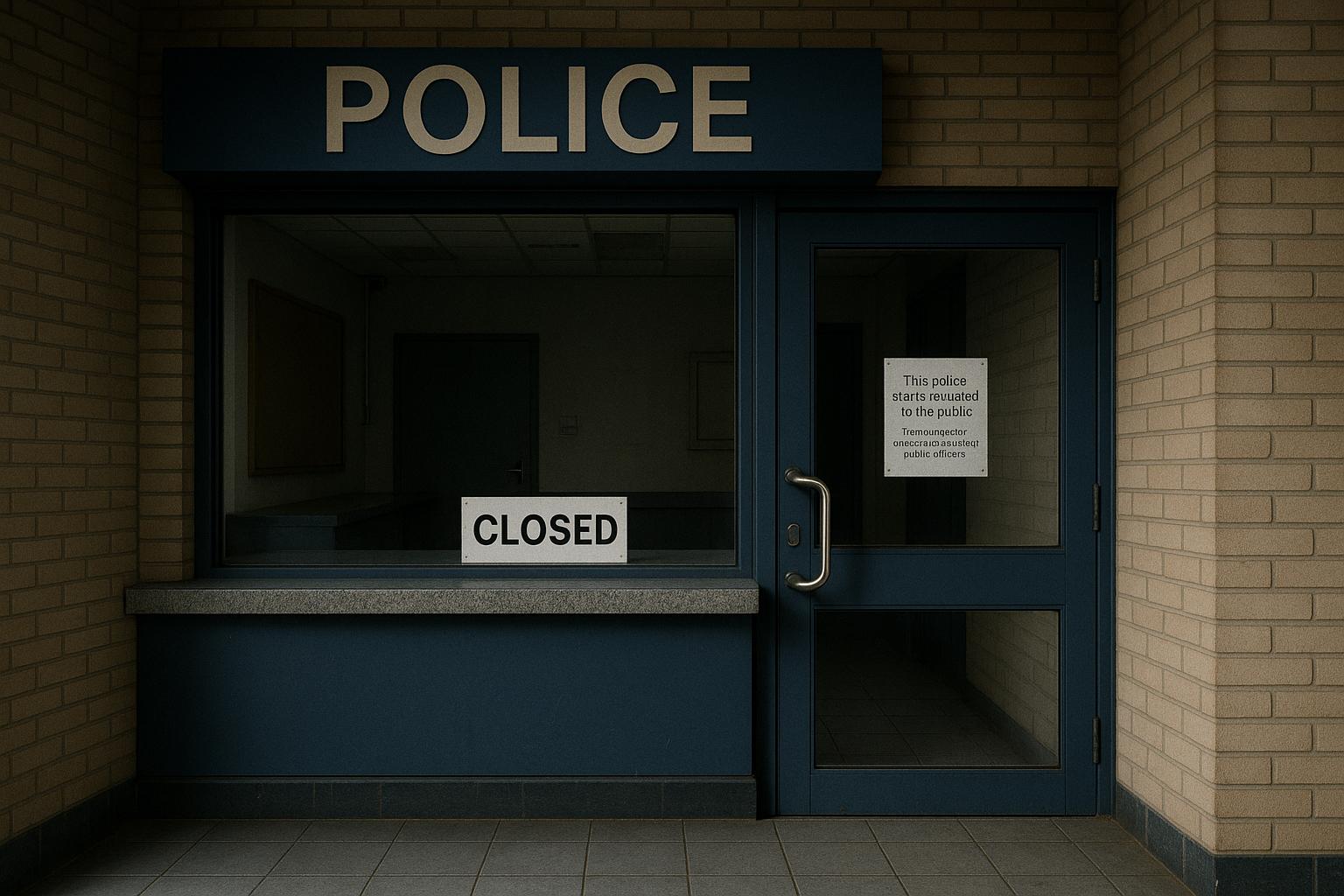A fresh political controversy has erupted in Merton following the announcement that local police station front counters are to close, leaving residents without accessible, public-facing police services in the borough. The Metropolitan Police’s restructuring plan, designed to address a significant £260 million funding gap, will see only two 24-hour police stations remain open across London—Charing Cross and Lewisham. Consequently, Merton will lose the front counters at both Wimbledon and Mitcham stations, forcing residents to undertake long journeys of up to 45 minutes or more to access face-to-face police support.
The closures have triggered considerable backlash from local political figures and community advocates. Merton’s Liberal Democrats have criticised the Labour-run council for failing to safeguard local police station access, accusing it of letting residents down during a critical time. Wimbledon MP Paul Kohler explicitly blamed Labour for this failure, pointing out that the party governs at national, London-wide, and local council levels. The Lib Dems have also condemned the Mayor of London for breaking a previous pledge to maintain one 24-hour police counter in every borough. They argue that the detrimental impact of the nearly quarter-billion-pound funding shortfall has sharply reduced vital policing services.
Community safety concerns are particularly acute among vulnerable groups such as older people, victims of domestic abuse, and those without reliable internet access—individuals who depend heavily on local, in-person support. National charity Refuge highlighted the risks faced by survivors who may lose discreet and immediate routes to safety and assistance, potentially increasing the number of people slipping through the cracks. Local campaigners view the closures as a serious blow to women's safety and community trust, emphasising the essential nature of having accessible police services when residents are most vulnerable.
Merton’s Labour councillors have expressed regret about the Metropolitan Police’s decision, with Councillor Edith Macauley MBE, the Cabinet Member for Enforcement and Community Safety, describing the closures as "deeply regrettable." She conveyed that the council has actively raised the issue with both the local policing commander and the Deputy Mayor for Policing and Crime. Although a motion opposing the closures passed at council, stronger amendments from opposition parties calling for more decisive action were rejected. The Labour group maintains a commitment to campaigning for the retention of Wimbledon and Mitcham police station front counters.
To mitigate the loss of physical police presence, the council has invested in alternative safety measures, including establishing a permanent Safer Streets Team and allocating £2 million towards upgrading CCTV systems borough-wide. The Safer Streets Team, which patrols neighbourhoods regularly including evenings and weekends, recorded over 300 patrol hours in its initial month, dealing with drug-related incidents and assisting residents and businesses.
The Metropolitan Police justify the reduction in front counters as part of a broader strategy to prioritise frontline policing amid funding constraints. According to a Met spokesperson, after extensive public consultation, they plan to keep 27 front counters open throughout London, of which only two will be staffed 24/7. Most counters will operate with reduced hours, balancing cost savings with some degree of local access.
These changes, however, have drawn criticism from various quarters. The Public and Commercial Services Union (PCS) has condemned the closures for undermining public safety and jeopardising the jobs of public access officers. Unite the Union warned that reduced front desk availability could lead to increased crime and heightened staff stress, predicting more unreported incidents and over 100 staff job losses. Local MPs and residents alike have voiced concerns about the erosion of accessible policing and the broader implications for community security, especially in areas like Merton where front counters are set to disappear entirely.
Some boroughs, such as Royal Greenwich, have managed to maintain their front counters after consultations with local authorities and police, highlighting that outcomes vary across London depending on local engagement and priority setting.
Overall, the Metropolitan Police's decision to close several police station front counters, including those in Merton, remains highly contentious. While authorities stress financial necessity and focus on frontline resource allocation, the resulting reduction in visible, accessible police services raises pressing questions about the implications for community safety, vulnerable residents, and public confidence in policing across London.
📌 Reference Map:
- Paragraph 1 – [1] (MyLondon), [2] (Met Police News)
- Paragraph 2 – [1] (MyLondon)
- Paragraph 3 – [1] (MyLondon), [4] (Evening Standard), [6] (Evening Standard)
- Paragraph 4 – [1] (MyLondon)
- Paragraph 5 – [1] (MyLondon)
- Paragraph 6 – [1] (MyLondon)
- Paragraph 7 – [2] (Met Police News), [7] (BBC News)
- Paragraph 8 – [3] (PCS Union), [6] (Evening Standard), [4] (Evening Standard)
- Paragraph 9 – [5] (Royal Greenwich Council), [1] (MyLondon)
- Paragraph 10 – [1] (MyLondon), [2] (Met Police News), [4] (Evening Standard)
Source: Noah Wire Services
